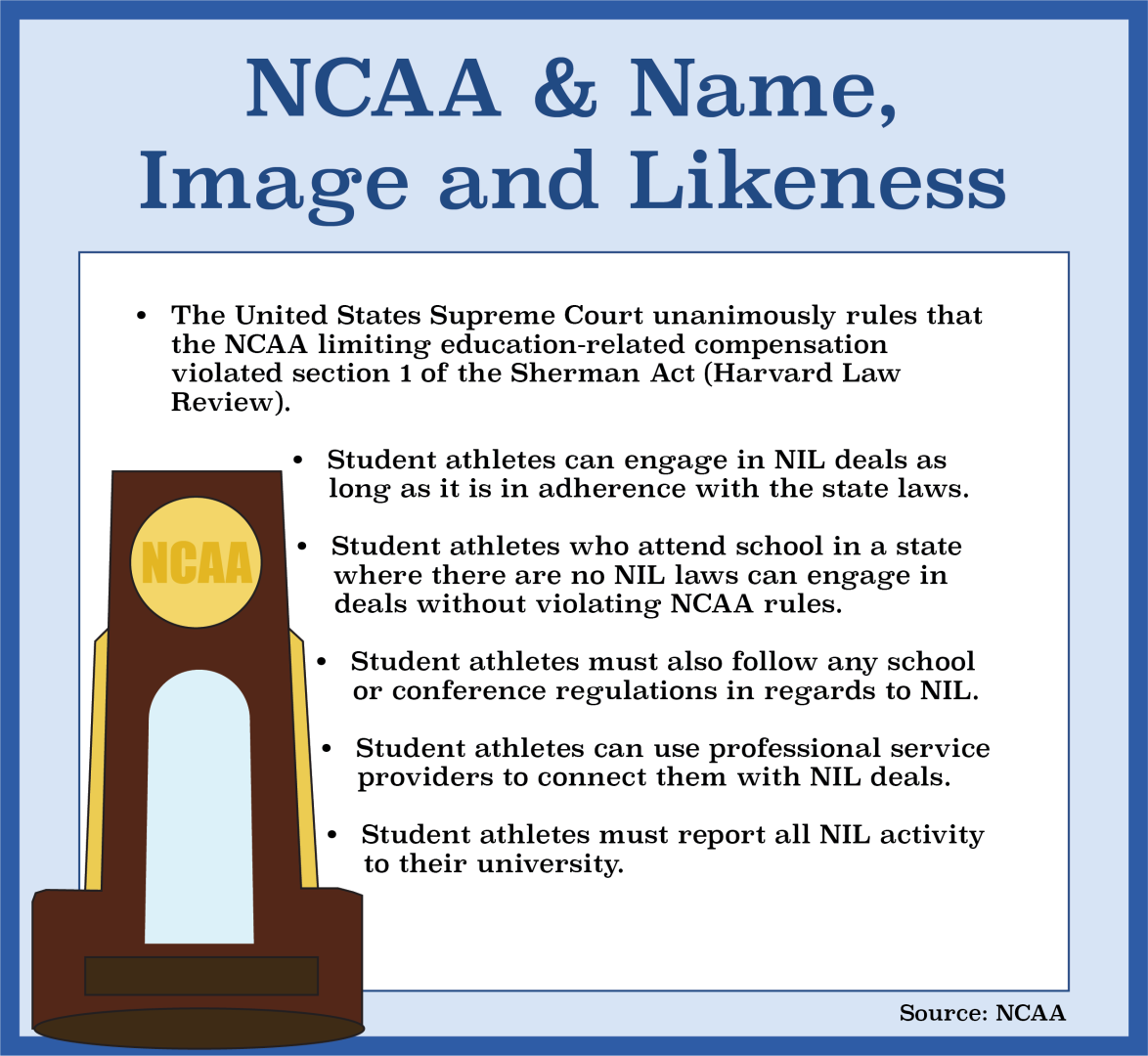In 2021, the Supreme Court unanimously decided the NCAA could not prohibit student athletes from profiting from their name, image and likeness. Now, NIL rules vary by state and division.
An interim policy for all universities, organizations and student athletes to follow was announced and immediately implemented following the decision, according to the NCAA. The policy states that everyone involved in making NIL deals must follow the laws in place in their university’s state and disclose all deals to the university. Student athletes are allowed to have professional services providers for NIL activities. This policy applies to every school that plays under the NCAA across every division, although Associate Athletic Director for Compliance at UIndy Katie Christman said it impacts every school and division differently. Christman said many Division I schools may have NIL deals with bigger brands and more popular athletes, but DII athletes, such as UIndy’s, can find unique and valuable deals.
“There’s a wide swath of options, it’s just a matter of finding the right fit,” Christman said. “Around here, a lot of schools, vary on what connections they have with their alumni or with their communities, and that’s really the focus, is building those relationships.”
Christman emphasized the importance of building relationships with potential NIL donors since, for a lot of DII student athletes, those come from smaller organizations or companies within the community. She said working with small businesses is an aspect of NIL which is unique to smaller schools because it gives both the student athlete and the business an opportunity to get their name out.
“It’s a matter of learning that something is available and learning to hone in and to understand that skill and to be able to go out and make those connections, which is still a learning process for a lot of Division II schools,” Christman said.
Christman also said the UIndy athletic department is working to hire a new athletic director by 2025, a position she said will have direct influence on NIL deals for UIndy student athletes. She said the department is eager to find the right person for the job in part to be able to offer opportunities to student athletes that they have not had in the past.
“For a city this size we should be able to capitalize on some of these issues,” Christman said. “It’s just been a matter of, in a small department, where your time and resources can be allotted and my hope is that that can be focused on in the coming year.”
Since student athletes have been able to capitalize on NIL deals, since 2021, there have been notable DII student athletes who have made deals with brands such as Powerade, Reebok and CVS, according to 2aDays. More often, Christman said NIL deals at the DII level can be as simple as a chain restaurant giving the student athlete free meals in exchange for them posting about the business on social media. Fundraising for NIL at DII schools is much different than at DI schools, Christman said, but student athletes at universities like UIndy still have opportunities available if they look and work for them. According to The Business of Small College Athletics, social media posts account for 68% of all NIL activities among student athletes of every sport, gender or school size.
“It’s important to find out what the right fit is, and finding the right partners,” Christman said. “That stuff can be done, and more intentionally once we have time to devote toward it, and I think that’ll come after the first of the year.”






